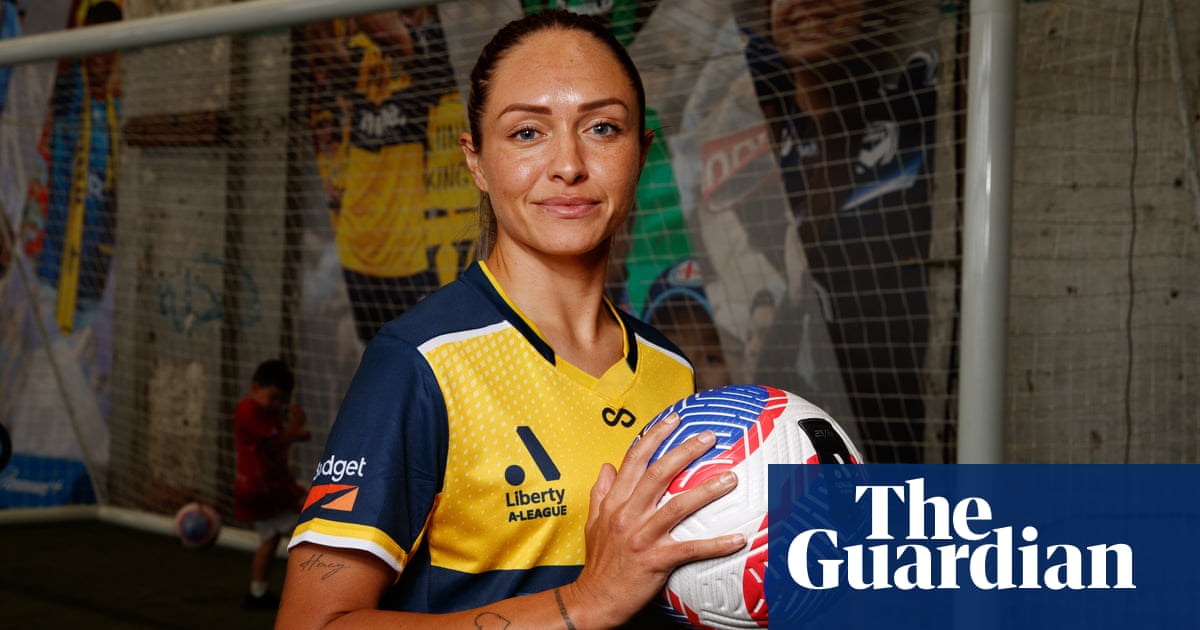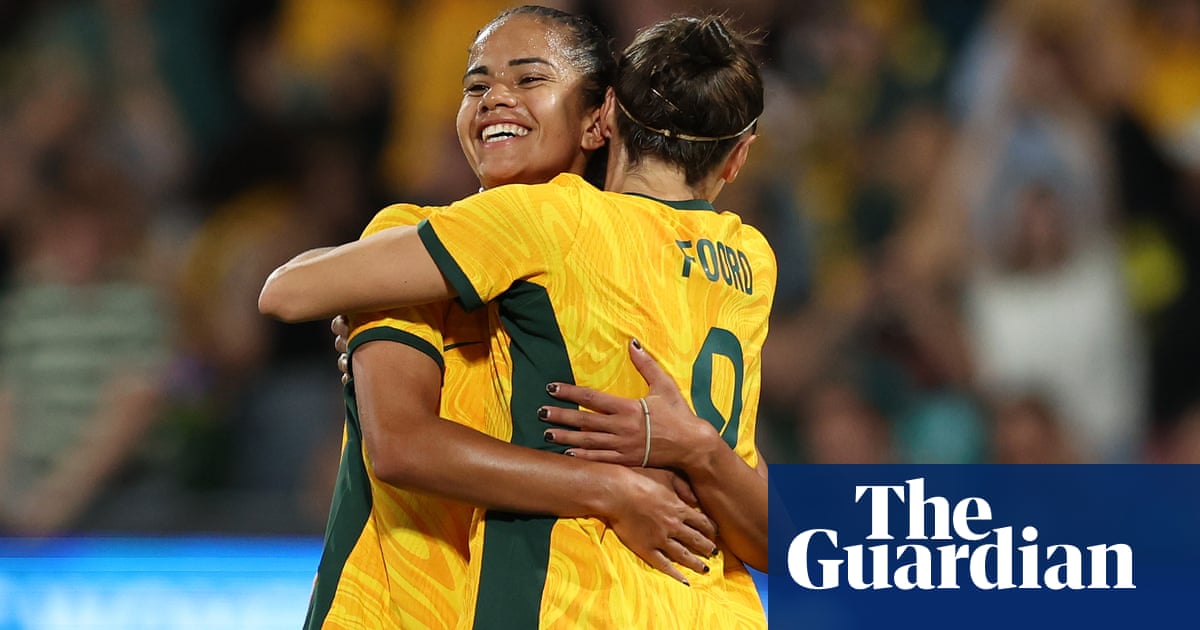
Seventeen years ago, Clare Polkinghorne jogged out on to a sticky pitch in Hangzhou, China, and lined up with 10 teammates for her first Women’s World Cup match. It was 2007, and Polkinghorne was the youngest in the squad. She had made her Matildas debut the year before, after an accelerated rise through the youth ranks where she was identified from an early age as a future leader of the senior team.
The centre-back helped Australia win that opening group-stage match against Ghana 4-1; an important result, it turned out, as it helped them qualify for the quarter-finals for the very first time.
It’s perhaps fitting, then, that the 38-year-old returns to her home town this week to bring down the curtain on her playing days, having announced her intention to retire at the end of the two-game series against Brazil and Taiwan. There is a growing sense of circling back to where things started, not only for her but also for the team she will leave behind.
Back in 2007, the Matildas were not as recognisable on the global stage as they are today. They were ranked 15th in the world, had only just emerged from Oceania to join the more competitive Asian Football Confederation, and weren’t expected to compete against the bigger nations at these major tournaments.
But they did. Spearheaded by a 22-year-old Lisa De Vanna and strike partner Sarah Walsh, and with names like Cheryl Salisbury, Collette McCallum, Joey Peters, Heather Garriock, and Dianne Alagich supporting from behind, two draws against Norway and Canada saw them make Australian football history in China.
Their progress was short-lived. Their first opponents in the knockout stage were Brazil: a team who have since become one of the Matildas’ longest-standing rivals, and who were led, back then, by the great Marta, who would go on to win the tournament’s Golden Boot and MVP awards.
Australia lost that game 3-2 – not a boilover, by any stretch – with the core of that team going on to become the country’s first Asian Champions just three years later.
History has a way of creeping out from the corner of the past to speak to the present, and there are many parallels between those Matildas and the current crop.
As the team prepare to face Brazil again – in Brisbane on Thursday and on the Gold Coast on Sunday – they are led by the same coach, Tom Sermanni, who oversaw the 2007 World Cup campaign and Asian Cup success.
Polkinghorne, just 18 in 2007, has spent the decades since becoming the leader it was hoped she would be, and bids farewell this week to her home town of Brisbane as the country’s most-capped player.
After Lydia Williams retired earlier this year, Polkinghorne is the last remnant of that historic side and represents the final connection to a time and a team slipping further into the past.
Or is it? Despite the cultural transformation of the Matildas over the past few years, the team have found themselves standing face-to-face with who they used to be, arriving right back at where they were almost two decades ago.
After a largely disappointing 2024, Australia are currently ranked 15th by Fifa, their lowest global position since March 2007. Brazil, by contrast, have shot up to eighth – the same rank as when they finished runners-up in China – thanks in part to their inspired silver medal at the Paris Olympics.
The extended squad that has been called in for this week’s Brazil friendlies, as well as the two Taiwan games the week after, is trademark Sermanni too. It is an almost even balance of experienced core players and young, fringe or otherwise emerging talent, with 15 of the original 36 players named having 10 caps or fewer.
The biggest difference, though, the biggest change, is the expectation the public now has of the Matildas. It is entirely the inverse to the last time they were here, when they were scrapping around, navigating growing pains and trying to find a way out of their recent history.
The Matildas’ home World Cup run was timed to perfection and catapulted this team into a stratosphere of celebrity never experienced before. But subsequently, their performances this year – the most recent Germany win aside – have not lived up to expectations.
Will they ever? Has the idea of the Matildas galloped so far ahead that the team itself, which must now deal with all the footballing problems that a team must inevitably address, cannot catch up?
With a home Asian Cup just 15 months away, and with international windows already a rare commodity in a calendar year, there is not only less time to lay down future foundations for Sermanni, but also, more pressingly, for whoever is appointed permanently after him.
As Sermanni said recently, his focus is on trying to bring his players back to the football; back, in some ways, to 2007. This upcoming quartet of games could see the Matildas slip even further into a past that is no longer recognisable. Or, if history really does repeat itself, they could turn slowly towards a future that they, like Polkinghorne, could only ever dream about.












